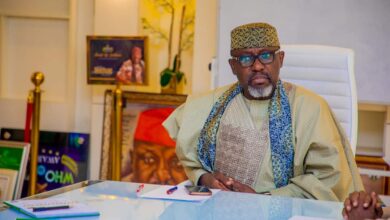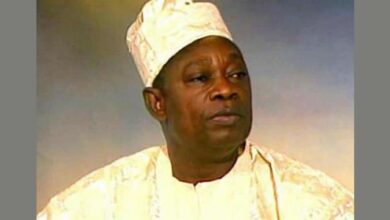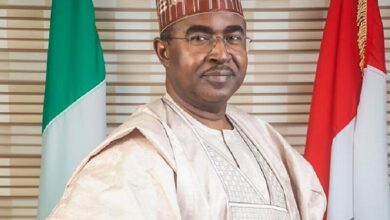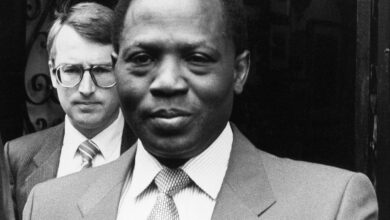20 Things You Should Know About Late General Sani Abacha

General Sani Abacha was a prominent and controversial figure in Nigeria’s political history. As a military leader and Head of State, his regime was marked by both significant achievements and widespread criticism. Here are 20 essential facts about General Sani Abacha that provide insights into his life, career, and legacy.
1. Early Life and Education
General Sani Abacha was born on September 20, 1943, in Kano, Nigeria. He attended the Nigerian Military Training College and later studied at the prestigious Mons Officer Cadet School in the United Kingdom, where he received military training.
2. Military Career
Abacha began his military career in the Nigerian Army in 1963. He quickly rose through the ranks, demonstrating leadership skills and military prowess, which set the stage for his later rise to power.
3. Participation in Coups
Sani Abacha was involved in several military coups in Nigeria. He played a key role in the coup that overthrew General Muhammadu Buhari in August 1985, which ultimately led to his assumption of power.
4. Head of State
After the coup against Buhari, Abacha became the de facto Head of State of Nigeria, ruling from 1993 until his death in 1998. His regime was characterized by a strong grip on power and military rule.
5. Economic Policies
Abacha implemented various economic policies aimed at stabilizing Nigeria’s economy. He promoted import substitution industrialization and made efforts to boost local production to reduce dependence on foreign goods.
6. Infrastructure Development
During his regime, significant investments were made in infrastructure development, including roads, bridges, and hospitals, which aimed to modernize Nigeria’s infrastructure.
7. Human Rights Violations
Abacha’s regime was notorious for its human rights abuses. Dissidents and political opponents faced persecution, imprisonment, and even execution, leading to widespread condemnation from international human rights organizations.
8. The Abacha Loot
General Sani Abacha’s government was marred by corruption, with estimates suggesting that he embezzled billions of dollars during his time in power. The “Abacha Loot” became a term synonymous with the massive corruption associated with his regime.
9. Execution of Ken Saro-Wiwa
One of the most significant events during Abacha’s rule was the execution of environmental activist Ken Saro-Wiwa and eight others in 1995. This act drew international outrage and further tarnished Nigeria’s reputation.
10. Political Suppression
Abacha’s government heavily suppressed political dissent, banning political parties and arresting opposition leaders. This suppression of democracy led to a climate of fear and repression.
11. Attempt to Consolidate Power
Abacha attempted to consolidate his power by announcing plans to transition to civilian rule while manipulating the political landscape to maintain control over the process.
12. International Relations
Abacha’s regime faced isolation from the international community due to its human rights record and corruption. Many countries imposed sanctions on Nigeria during his rule.
13. Health and Death
General Sani Abacha died on June 8, 1998, under controversial circumstances. His sudden death was officially attributed to a heart attack, but speculation about foul play and poisoning persisted.
14. Successor
Following Abacha’s death, General Abdulsalami Abubakar became the Head of State, initiating a transition process toward democracy, which eventually led to the return of civilian rule in 1999.
15. Legacy of Controversy
Sani Abacha remains a polarizing figure in Nigerian history. While some admire his economic policies and infrastructure development, others condemn his brutal regime and human rights violations.
16. Cultural Impact
The events of Abacha’s rule have influenced Nigerian literature and cinema, inspiring works that critique military rule, corruption, and the struggle for democracy.
17. Family Background
Sani Abacha was married to Maryam Abacha, and they had several children. His family has faced scrutiny and controversy regarding the wealth amassed during his regime.
18. Posthumous Investigations
After his death, investigations into the corruption and embezzlement during his rule continued. Many countries have recovered stolen assets linked to his regime.
19. Abacha’s Image in Nigeria
While many Nigerians view Abacha negatively due to his regime’s human rights abuses, others reminisce about the relative stability and infrastructure development during his rule.
20. Lessons from His Era
The legacy of General Sani Abacha serves as a reminder of the importance of governance, accountability, and the protection of human rights in Nigeria’s ongoing democratic journey.
General Sani Abacha’s life and regime were marked by significant achievements and profound controversies. Understanding his role in Nigeria’s history is crucial to grasping the complexities of the nation’s political landscape and the ongoing struggle for democracy and good governance. His legacy continues to spark debates and reflections on the lessons learned from his time in power.




